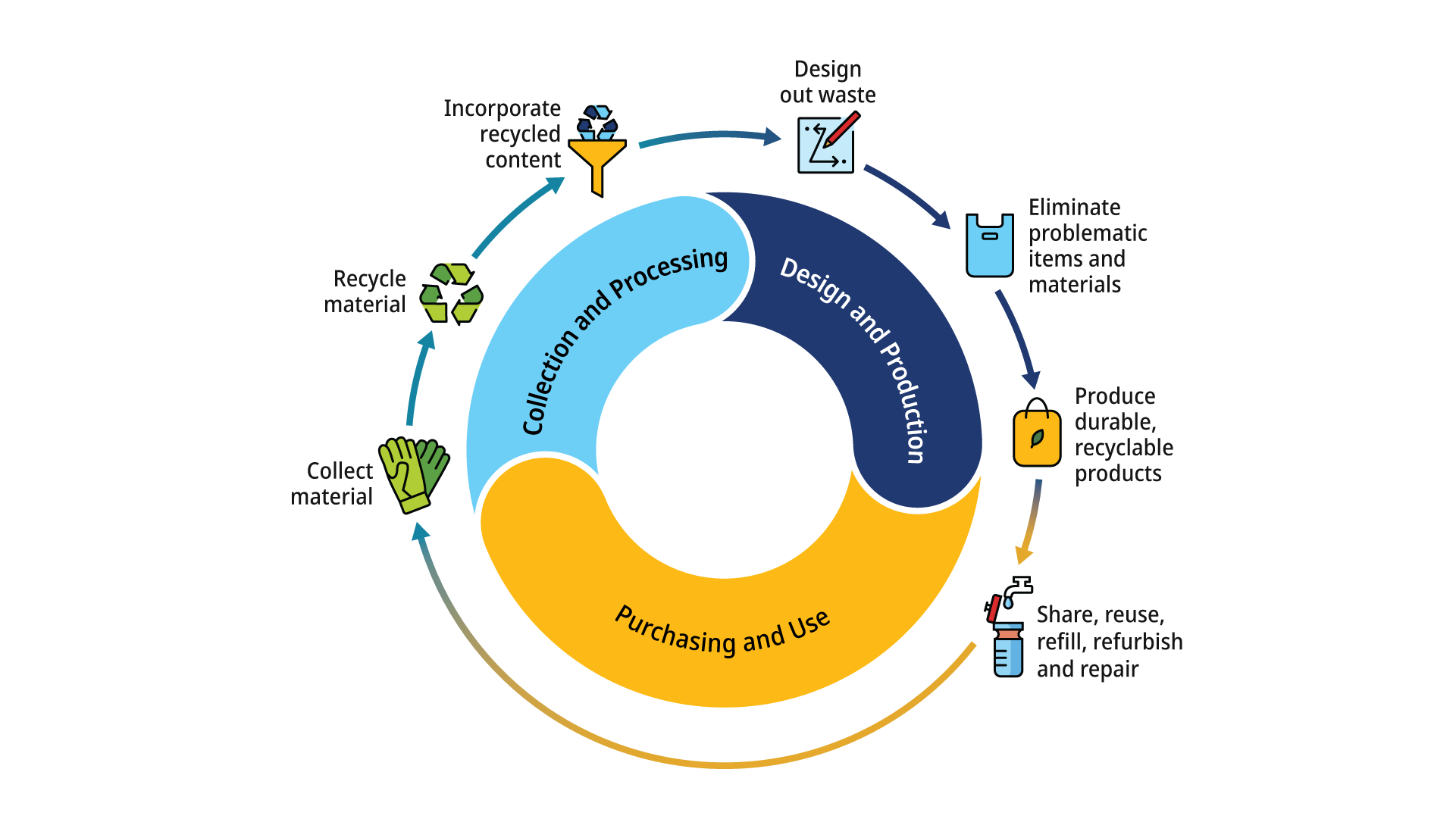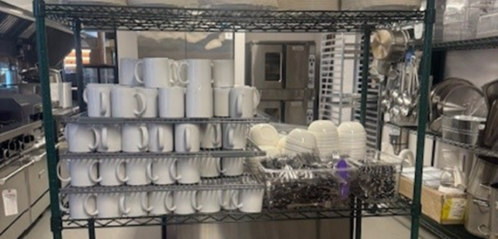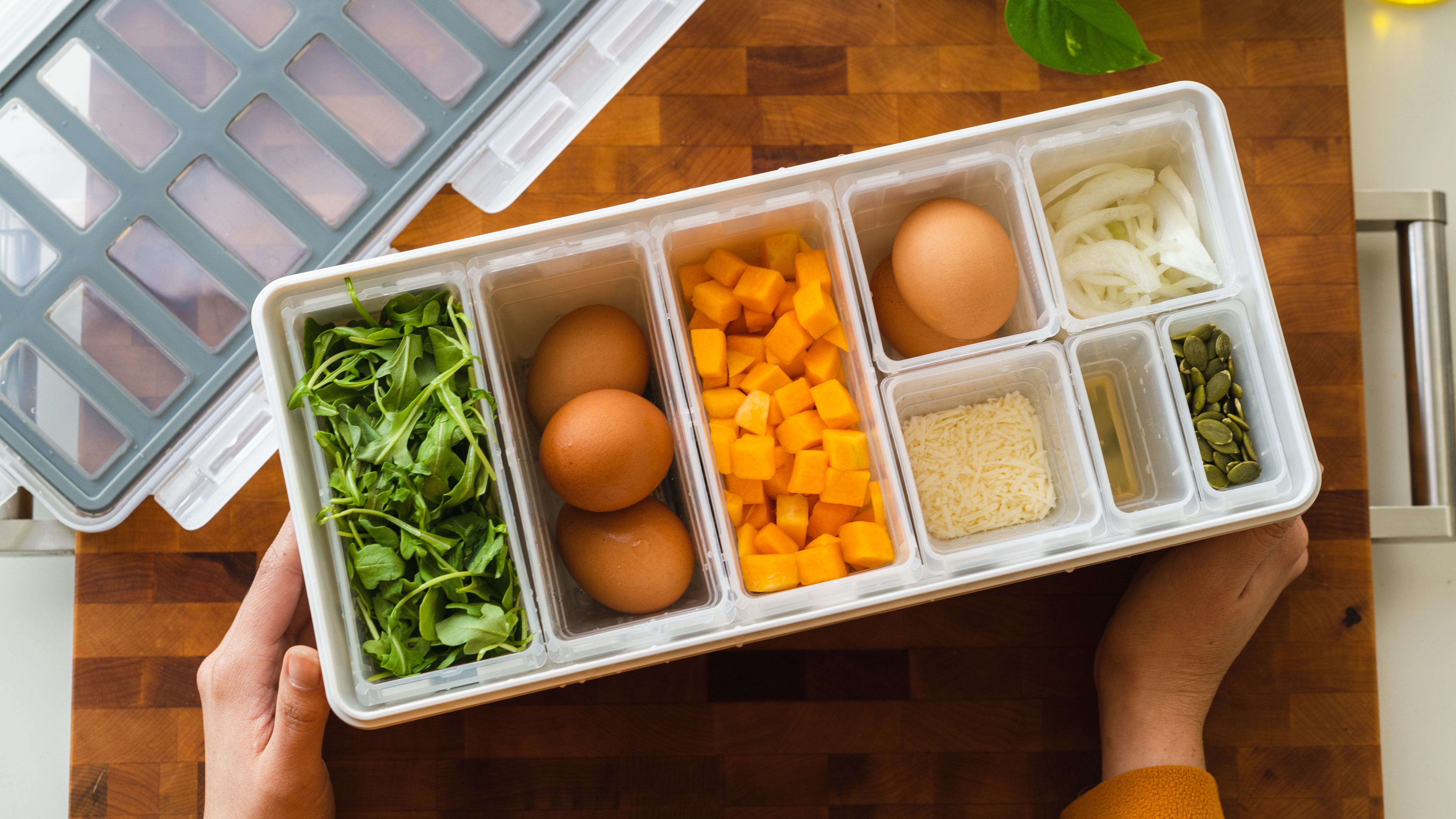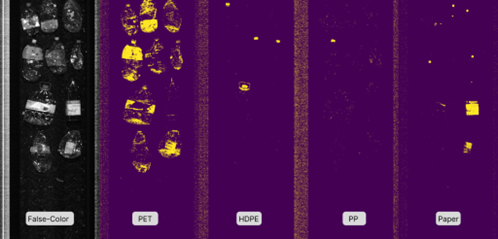Actions and success stories in plastic reduction
Government is committed to phasing out single-use plastics and transitioning to the circular economy through many actions.
Learn more about some of the actions we're taking to phase out single-use plastics and read success stories about our transition to a circular economy.
On this page
Circular economy
In a circular economy, resources are never tossed but instead are reused, recycled and reintroduced as new products.

Actions to reduce plastic waste
Here are some examples of the actions we're taking in B.C. to reduce single-use plastics and move toward a circular economy.
B.C.'s recycling system
In B.C., producers of products listed under the Recycling Regulation are responsible for the life cycle of the products they make, including:
- Collecting product waste
- For example: residential household collection or recycling depots
- The end-of-life waste management of that product
- Such as, reuse and recycling
This waste management approach is called Extended Producer Responsibility (EPR).
To learn more about B.C.’s EPR programs, visit Recycling.
Investments in plastic waste solutions
B.C. has invested nearly $40 million through the CleanBC Plastics Action Fund. This fund supports made-in-B.C. solutions that:
- Reduce the use of new plastic
- Expand reuse of plastic
- Increase the use of recycled plastic
- Create new jobs
Learn more about the CleanBC Plastics Action Fund
Investments in shoreline cleanups
Ocean plastic is an important and emerging focus for environmental protection in the province.
The issues of abandoned vessels, marine debris, and marine-sourced plastics are complex.
Learn more about ocean plastics and marine debris clean up.
Clean Coast, Clean Waters Initiative Fund
Through the Clean Coast, Clean Waters Initiative Fund, B.C. has provided funding to First Nations, local communities and businesses to remove debris and derelict vessels from B.C.’s coastline.
To date, this program has:
- Removed over 1,500 tonnes of marine debris, including 118 derelict vessels
- Cleaned more than 4,600 kilometres of shoreline; and
- Created more than 1,700 well-paying jobs
Learn more about the Clean Coast, Clean Waters Initiative Fund.
Success stories
Daylu Dena Council
With funding from the CleanBC Plastics Action Fund, the Daylu Dena community, near the Yukon border, implemented initiatives to reduce plastic waste. These efforts included providing recycling bins for homes and offices, reusing fabric to create a quilt for display in their new building, and purchasing reusable dishware for community events, promoting sustainability across the community.
Fresh Prep Zero Waste Kit
With funding from the CleanBC Plastics Action Fund, Fresh Prep – a meal-prep delivery service – were able to increase the use of their Fresh Prep Zero Waste Kit, preventing over 100 tonnes of plastics annually. A first for the industry, the kit allows customers to enjoy the same level of convenience with no plastic waste.
Metaspectral
Metaspectral uses AI and hyperspectral imaging to help sort recyclable materials. With CleanBC Plastics Action Fund support, they integrated an air ejection system into their sorting technology to improve sorting accuracy and efficiency, boosting the quality of recovered plastics.
Contact information
Know of a plastic reduction success story? Share it with us!
Plastics@gov.bc.ca



